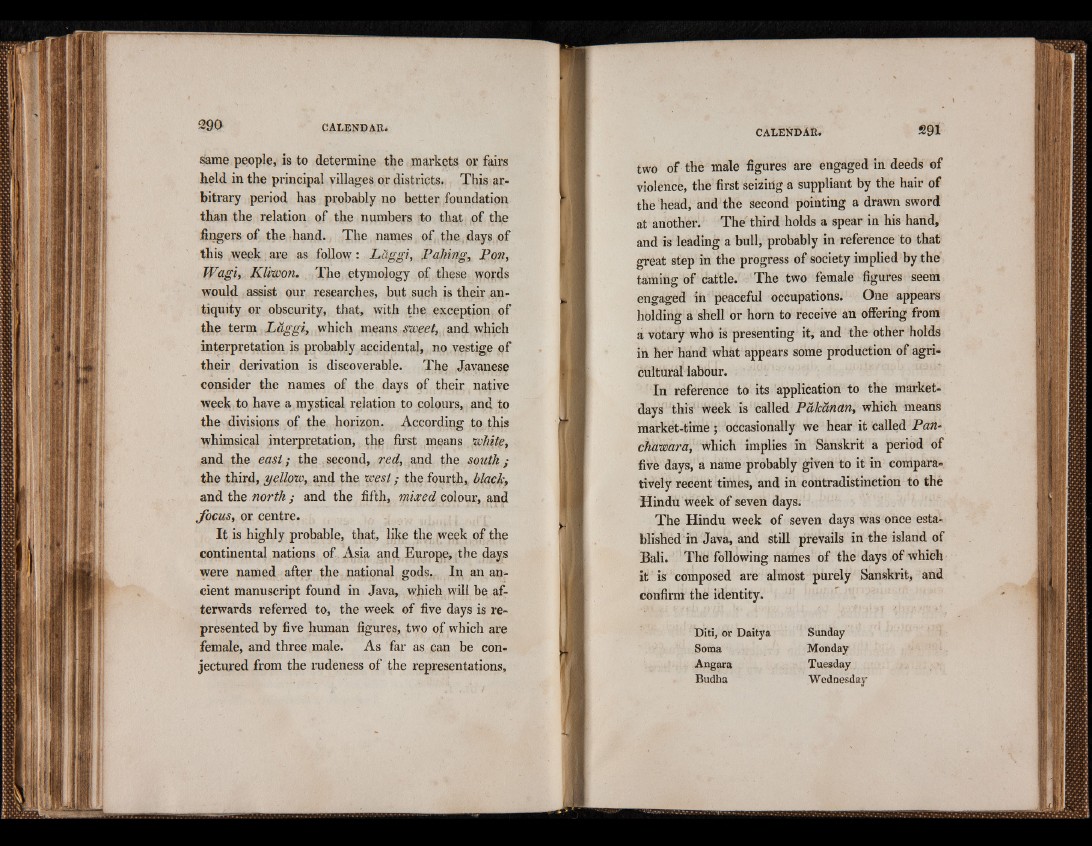
same people, is to determine the markets or fairs
held in the principal villages or districts. This arbitrary
period has probably no better foundation
than the relation of the numbers to that of the
fingers of the hand. The names of the days of
this week are as follow: Ldggi, Pahirtg, Pon,
Wagi, Kliwon. The etymology of these words
would assist our researches, but such is their antiquity
or obscurity, that, with the exception of
the term Laggi, which means sweety and which
interpretation is probably accidental, no vestige of
their derivation is discoverable. The Javanese
consider the names of the days of their native
week to have a mystical relation to colours, and to
the divisions of the horizon. According to this
whimsical interpretation, the first means white,
and the east; the second, red, and the south;
the third, yellow, and the west; the fourth, black,
and the north ; and the fifth, mixed colour, and
focus, or centre.
It is highly probable, that, like the week of the
continental nations of Asia and Europe, the days
were named after the national gods. In an ancient
manuscript found in Java, which will be afterwards
referred to, the week of five days is represented
by five human figures, two of which are
female, and three male. As far as can be conjectured
from the rudeness of the representations,
two of the male figures are engaged in deeds of
violence, the first seizing a suppliant by the hair of
the head, and the second pointing a drawn sword
at another. The third holds a spear in his hand,
and is leading a bull, probably in reference to that
great step in the progress of society implied by the
taming of cattle. The two female figures seem
engaged in peaceful occupations. One appears
holding a shell or horn to receive an offering from
a votary who is presenting it, and the other holds
in her hand what appears some production of agricultural
labour.
In reference to its application to the market-
days this week is called Pakdnan, which means
market-time $ occasionally we hear it called Pan-
chawara, which implies in Sanskrit a period of
five days, a name probably given to it in comparatively
recent times, and in contradistinction to the
Hindu week of seven days.
The Hindu week of seven days was once established
in Java, and still prevails in the island of
Bali. The following names of the days of which
it is composed are almost purely Sanskrit, and
confirm the identity.
Diti, or Daitya Sunday
Soma Monday
Angara Tuesday
Budha Wednesday